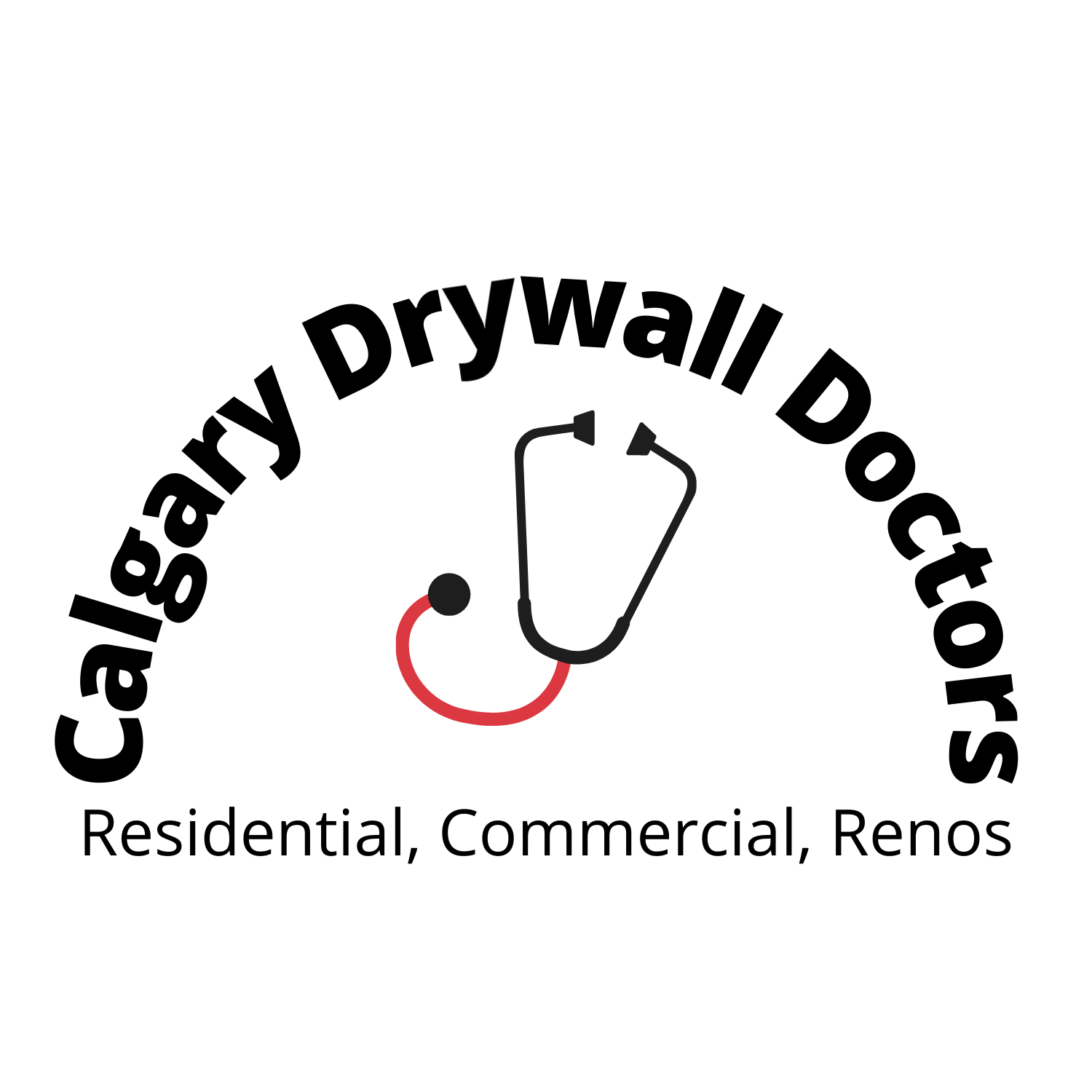Your drywall installation costs will primarily depend on material choice ($0.40-$3.00/sq ft), labor rates ($50-$100/hour), room dimensions, and building vintage. You’ll face higher expenses for specialty materials like water-resistant or sound-isolation drywall, while regional labor variations can comprise 65-75% of total costs. Professional installation ranges from $1.00-$2.70/sq ft, compared to DIY material costs of $200-$400 for a 12×12 room. Understanding these key factors will help you develop an accurate project budget.
Key Takeaways
- Material selection significantly impacts costs, ranging from $0.40 for standard drywall to $3.00 per square foot for specialty sound-isolation panels.
- Labor expenses represent 65-75% of total installation costs, with professional rates varying between $50-$100 per hour based on location.
- Room size and complexity affect pricing, with features like archways and ceiling installations increasing costs by 10-30%.
- Older buildings may require additional expenses for hazardous material testing, structural reinforcement, and updating outdated systems.
- Professional installation costs $1.00-$2.70 per square foot, while DIY projects can save up to two-thirds on total expenses.
Material Types and Their Price Points

When selecting drywall for your construction project, you’ll encounter several material types at distinct price points that reflect their specialized features and applications. Standard drywall, your most economical choice at $0.40-$0.50 per square foot, meets general installation requirements. For moisture-prone areas, you’ll want to take into account water-resistant drywall at $0.55-$0.70 per square foot, while fire-resistant Type X drywall, priced from $0.55-$0.90, guarantees code compliance in critical areas. If sound isolation is your priority, specialty drywall options range from $1.85-$3.00 per square foot. For environmentally conscious builders, eco-friendly drywall provides a sustainable alternative at $0.70-$0.90 per square foot. Understanding these material types and their associated costs helps you make informed decisions that align with your project’s requirements and budget constraints. The complexity of installation significantly impacts overall costs, particularly in projects requiring numerous cutouts or special architectural considerations.
Labor Costs and Regional Variations
While material costs play a considerable role in your drywall project, labor expenses typically constitute the lion’s share at 65-75% of total installation costs. You’ll find professional rates varying between $50-$100 per hour, with regional variations considerably impacting your total cost.
When planning your drywall installation, consider these key labor cost factors:
- Seasonal demand fluctuations, where peak construction periods command premium rates
- Urban area premiums due to higher living costs and competitive skilled labor markets
- Project complexity factors, including custom designs and high ceiling installations
- Regional market variations, which can affect professional rates by up to 50%
Understanding these variables helps you budget effectively, as labor costs typically range from $1.00 to $3.00 per square foot depending on your location and project specifications.
Moisture-resistant drywall installations in areas like bathrooms and basements often require specialized labor skills, leading to higher professional rates.
Room Dimensions and Structural Complexity

Room dimensions and structural intricacy serve as primary cost drivers in drywall installation projects. You’ll find that project size considerably impacts your total expenses, with small bathrooms costing $300-$1,000 while larger 2,000-square-foot spaces can range from $8,000-$30,000.
Your room’s structural complexity, including features like niches and archways, directly affects labor costs due to specialized installation requirements. You’ll need to account for ceiling installations, which typically cost 10-30% more than walls. The selection of drywall panels can influence your project’s efficiency, as larger panels reduce seams and installation time. Moreover, you’ll need to comply with local building codes, particularly in moisture-prone areas like kitchens and bathrooms, which may necessitate specific material choices and installation methods. Scheduling your installation during off-season months from late fall to early spring can help reduce overall costs due to lower contractor demand.
Age-Related Considerations for Buildings
Since older buildings present unique challenges, you’ll need to carefully evaluate maturity-related factors before starting your drywall installation project. Pre-1980 homes often require specialized attention due to hazardous materials like asbestos and lead paint, which can greatly impact your budget.
When planning renovations in older homes, consider these critical factors:
- Testing and mitigation costs for hazardous materials ($250-$600 for testing, $7-$15/sq ft for removal)
- Structural weaknesses requiring careful handling during installation
- Further permits and inspections for safety compliance
- Potential need for moisture-resistant panels ($0.55-$0.90/sq ft)
Your project may also uncover hidden issues like outdated wiring ($5-$17/sq ft) or plumbing ($450-$1,800/fixture). These extra costs should be factored into your initial budget to avoid unexpected expenses during drywall installation. Installing green board drywall can provide essential moisture resistance for basement areas while keeping costs reasonable.
Professional Vs DIY Installation Analysis

Before starting on a drywall installation project, you’ll need to carefully weigh the financial implications of professional versus DIY approaches. Professional installation typically runs $1.00 to $2.70 per square foot for labor, representing up to 75% of your total drywall installation costs. While DIY installation can save you roughly two-thirds on your home improvement project, you’ll need specialized tools and skills for quality results.
Consider the complexity of the installation when making your decision. For a basic 12 x 12 room, your DIY materials might cost $200-$400, while professional installation services could total $580-$1,800. If you’re tackling intricate designs or larger spaces, professional installation often proves more cost-effective in the long run, as contractors’ expertise in finishing drywall helps avoid expensive mistakes and guarantees code compliance. Professional contractors like Calgary Drywall Doctor offer ceiling texturing services and expert finishing that can significantly enhance your home’s aesthetic appeal.
Building Codes and Permit Requirements
Whether you choose professional installation or DIY, understanding local building codes and permit requirements must come initially. You’ll need to verify your local regulations to guarantee your drywall installation meets all safety and compliance standards. While permits aren’t typically required for basic drywall replacement, you’ll need them for projects involving:
- Structural changes to load-bearing walls
- New electrical wiring behind drywall
- Plumbing modifications within wall cavities
- Alterations affecting fire-rated assemblies
If you’re working with an older home, you’ll need further inspections for hazardous materials, which can impact your project costs and timeline. Consulting a licensed contractor can help you navigate these requirements effectively. Remember, non-compliance with building codes can result in expensive rework and potential fines, so it’s imperative to get it right from the start. Working with professionals who prioritize industry standards ensures your project meets all regulatory requirements while maintaining quality and efficiency.
Additional Services and Specialty Finishes

While basic drywall installation provides fundamental wall coverage, supplementary services and specialty finishes can transform your space into a customized environment. Extra services like taping and mudding will add $0.50 to $2.50 per square foot to your installation cost, depending on your desired finish level. If you’re looking to improve your space further, specialty finishes and custom designs range from $0.80 to $2.00 per square foot. For specific requirements, soundproof drywall offers premium acoustic benefits at $1.85 to $3.00 per square foot, while eco-friendly drywall options cost between $0.70 and $0.90 per square foot. Keep in mind that complex installations and custom work often result in higher labor fees, as experienced drywall contractors charge premium rates for their specialized expertise. Choosing true professionals for your drywall finishing needs helps avoid costly mistakes and ensures lasting quality results.
Frequently Asked Questions
How Much Does It Cost per Square Foot to Install Drywall in Canada?
You’ll typically pay $1.50-$3.50 per square foot for wall drywall installation and $1.50-$3.80 for ceilings in Canada, including labor and materials. Costs vary based on your region and project specifications.
How Much Does 1000 Sq Ft of Drywall Cost?
You’ll typically spend between $1,500-$7,000 for 1,000 sq ft of drywall, including materials and labor. Your final cost depends on drywall thickness, finishing techniques, and whether you’re choosing professional installation or DIY.
How Much Should I Charge to Install and Finish Drywall?
You’ll want to charge $2-4 per square foot total, factoring in labor rates, material quality, and finishing techniques. Consider your location’s market rates and project size to maintain competitive pricing while ensuring healthy profit margins.
What Is the Rule of Thumb for Drywall Estimating?
You’ll want to estimate $1.50-$3.50 per square foot for walls and slightly more for ceilings, including labor and materials. Add 10-15% for waste, and remember labor typically represents 65-75% of total costs.
Conclusion
You’ll need to account for multiple variables when calculating drywall installation costs, from material grade specifications to regional labor rates. Factor in your room’s square footage, structural obstacles, and local building codes. Whether you’re opting for Level 1 or Level 5 finish, consider that professional installation typically delivers superior ROI compared to DIY approaches, especially when dealing with fire-rated assemblies or specialty acoustic installations.





